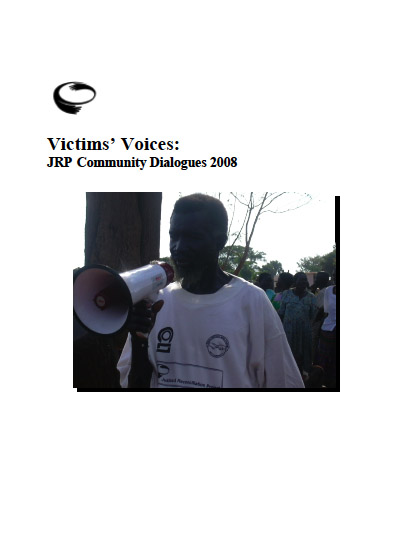
This report presents the diverging opinions that exist among the war-affected people in northern Uganda concerning how post-conflict issues of justice and reconciliation should be handled.
These responses were gathered by JRP camp focal persons from four community dialogues conducted in Kitgum and Amuru districts in 2008. The dialogues present opinions of participants about how reconciliation and healing can be promoted among the war-affected communities in northern Uganda.
They indicate that while many people in northern Uganda are of the view perpetrators of war crimes need to be forgiven, a significant majority would also like to see some form of accountability meted out. The views of war-affected persons about the role of local mechanisms in post-conflict reconciliation and healing in northern Uganda also feature in the dialogues. While it has always been assumed that war-affected communities wholeheartedly support the use of local mechanisms such as mato oput, it is also interesting to note that a significant minority have reservations about the effectiveness and relevance of these mechanisms. Equally interesting and controversial is the opinion of respondents about who is responsible for the conflict in northern Uganda.
To access the report, click here.
